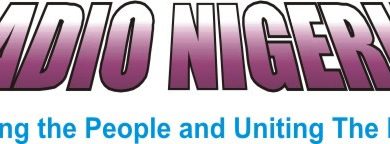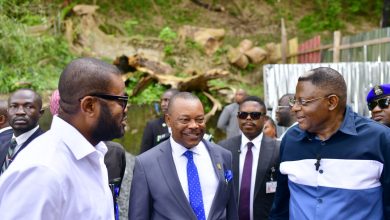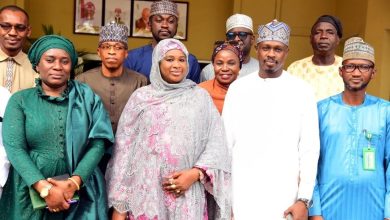1.3 Trn Naira 2022 Budget: Provide more jobs, Obasa tells Sanwo-Olu

Speaker of the Lagos State House of Assembly, Rt. Hon. Mudashiru Obasa, has urged the Governor Babajide Sanwo-Olu to work more on policies to bring more dividends of democracy to the people of the State.
Chief Obasa who passed a vote of confidence on Mr. Sanwo-Olu for the achievements of the current administration, said the dividends still needed to get to the grassroots.
The Speaker also called on the administration of President Muhammadu Buhari to rejig the economy of Nigeria to reduce unemployment, insecurity and poverty.
He praised the House of Assembly for its pro-people orientation and for constantly supporting the Governor to meet the yearnings of the people of the State.
He said the support the Governor enjoys from the Assembly had reflected in the successes so far achieved by the government.
While commending the seven-man judicial panel of inquiry into cases of brutality and human rights violations committed by operatives of the disbanded special anti-robbery squad (SARS) in the state, for completing its task, the Speaker urged Lagosians to remain patient and not stoke controversies while a white paper on the report is being expected.
Earlier, the Lagos State Governor, Mr. Babajide Sanwo-Olu presented a budget of N1,388,285,459,990.51 (One Trillion, Three Hundred and Eighty-Eight Billion, Two Hundred and Eighty-Five Million, Four Hundred and Fifty-Nine Thousand, Nine Hundred and Ninety Naira, Fifty-One kobo only) to the House of Assembly.
The 2022 budget, which was christened “Budget of Consolidation” by Mr. Sanwo-Olu, has an increase of about N233 billion as against Year 2021 budget, which stood at N1.155 trillion.
The Year 2022 Appropriation Bill has a capital expenditure of N823,351,128,104.10 representing 59 percent of the budget, while the recurrent expenditure is put at N564,934,331,886.41 representing 41 percent of the total budget.
The budget, according to the governor, comprised a total revenue of N1,135,159,092,822.30 and deficit financing of N253,126,367,168.21.
He said that his administration proposed a total revenue of ₦1,135,159,092,822.30 for Y2022, which composes of total internally generated revenues at N898,891,092,822.30 and total federal transfers at N236,268,000,000.00.
The Total Overhead Cost is put at N303,272,873,298.10 comprising: Overhead Cost at N158,734 783,394.89; Subventions at N89,642,302,488.07, and Dedicated at N54,895,787,415.14.
The Total Personnel Cost stood at N189,399,268,261.49, while Recurrent Debt service stood at N72,262,190,326.82.
According to the sectoral allocation, Economic Affairs got the largest share of the budget with a total sum of N325,014,165,395 representing 23.41 percent of the total budget.
The General Public Services got N235,400,815,610 representing 16.96 percent; Public Order and Safety N61,710,691,428 representing 4.45 percent; Environment N49,846,704,975 representing 3.59 percent; Housing and Community Amenities got 77,980,156,022 representing 5.62 percent.
The Health sector got N123,166,815,968 representing 8.87 percent; Recreation, Culture and Religion got N16,768,767,649 representing 1.21 percent; Education N171 ,672,5145,711 representing 12.37 percent; Social Protection got 9,810,289,079 representing 0.71 percent, making the sectoral total standing at N1,071,370,951,836 representing 77.17 percent of the budget.
Contingency Reserve (Including Special Expenditure-Statewide and Special Expenditure-Others) got N36,917,567,516 representing 2.66 percent; Loans (Repayments, CDSA & Debt Servicing) got 170,997,372,704 representing 12.32 percent; Personnel Cost (Service-wide and Pension) got 53,147,182,926 representing 3.83 percent; Grants & Counterpart Fund got N55,852,385,009 representing 4.02 percent; Statewide got 316,914,508,154 representing 22.83 percent.
Sanwo-Olu stated that the deficit financing will be by way of a combination of external and domestic loans and bonds, which are well within our fiscal sustainability parameters.
According to him, “We have clearly articulated our vision in tackling governance in the State through the T.H.E.M.E.S agenda and have commenced the state’s thirty-year development plan 2021-2051 that will update and replace our previous plan, which was for 2012 -2025.
“This is necessary given the huge global changes that have come on us as a people and a nation. We must therefore continue to have a long-range view to our desired outcomes. This plan will therefore provide strategic direction and oversight for further growth and development in the State. This Year 2022 Budget is the next step on our journey to true and sustainable greatness in Lagos State.
“The Year 2022 budget projects a continuing but very gradual recovery to growth in economic activity as the global economy cautiously recovers from the impact of the Coronavirus pandemic. We have therefore approached our revenue expectations with cautious optimism.
“It should be noted that there has been a corresponding review of the accruals from the Statutory Allocations and VAT in line with the downward review of the Federal Budget’s Benchmark Oil Price to $57 per barrel.”
He explained further that Lagos State will continue to be at the forefront of the push for a fiscal framework that is truly reflective of the contributions and status of the constituent parts of our Federal Republic, and that empowers the units that are closest to the people to deliver the dividends of democracy more effectively.
Discover more from Radio Nigeria Lagos
Subscribe to get the latest posts sent to your email.




